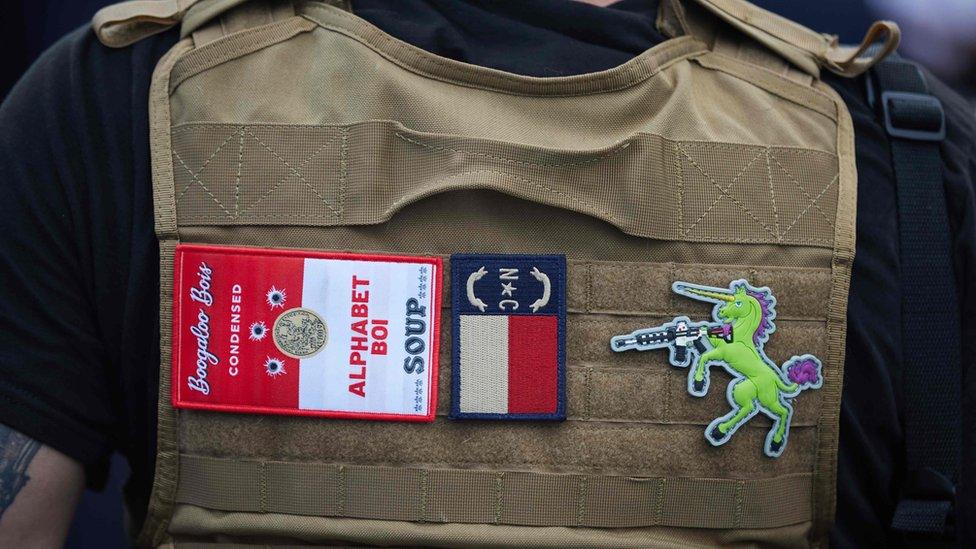FBI arrests two members of extremist 'Boogaloo' group
- Published

Boogaloo followers are fixated on firearms and preparing for "another US civil war"
The FBI has arrested two alleged members of extremist anti-government group the Boogaloo Bois.
Timothy Teagan, 24, of Michigan, is accused of lying about drug use while purchasing a gun.
Aron McKillips, 29, of Ohio, is accused of illegal possession of a machine gun and interstate communication of threats.
US authorities have warned of the potential for violence ahead of next week's midterm elections.
Mr Teagan appeared in federal court in Detroit, Michigan, on Wednesday, wearing a colourful Hawaiian-style shirt, an item of clothing often seen on supporters of the so-called Boogaloo movement.
The anti-government subculture, whose followers believe a second US civil war is coming, has been linked to a series of domestic terrorism plots.
Mr Teagan was arrested in a Detroit suburb on 25 October, charged with assaulting his father.
FBI agents later returned to find packages of suspected marijuana in his room at his father's Plymouth home.
According to court papers, Mr Teagan had certified he did not use controlled substances on a federal form he filed to buy a Glock handgun.
Agents also found body armour, Boogaloo movement flags and gas masks at the property, according to the criminal complaint.
Mr McKillips, of Sandusky, Ohio, was arrested on Tuesday. He is accused of making online threats to kill a police officer and any federal informant.
He also allegedly boasted of converting semi-automatic rifles into machine guns.
According to the criminal complaint, he said in a private chat group in September 2021: "Ain't Got a federal badge off a corpse yet, so my time here ain't near done yet lol."
He also allegedly threatened to blow up Facebook's headquarters and the Internal Revenue Service, the US tax collection agency.
With the midterms vote looming on 8 November, the US government distributed a bulletin to law enforcement last week warning of a "heightened threat" of domestic violent extremism, adding that candidates and election workers could be targeted by individuals with "ideological grievances".
US election workers have increasingly been facing threats and harassment as former President Donald Trump continues to spread unfounded claims he lost the 2020 election because of mass voter fraud.